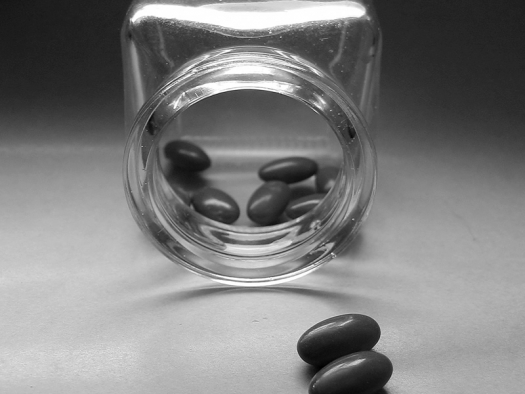HRTpills.jpg

Photo by Bastet78, ©2008 / CC BY-SA 4.0
Considering how much news comes out on the consequences of taking conventional HRT (hormone replacement therapy), I think it is important to stay abreast of the latest research on the subject. It's so compelling that I wanted to share some important new findings from this past year alone.
Ovarian Cancer: A study of nearly a million women showed that even if HRT is taken for less than a year, and even if it's low dose, it brings a significant increase in ovarian cancer risk. This link was confirmed by the finding that after a woman has been off HRT for two years, her increased ovarian cancer risk drops back to her original risk level (July 2009, Journal of the American Medical Association).
Asthma: It has been known for several years that HRT significantly increases a woman's odds of developing asthma after menopause, even if she has no respiratory allergies. In a recent study of nearly 60,000 asthma-free women entering menopause, taking HRT not only increased their risk of developing asthma by 20 percent, but that risk rose to 54 percent if the HRT consisted of estrogen without progesterone. And, if a woman already had some form of allergies before starting estrogen replacement therapy, her risk of developing asthma went up by a whopping 86 percent (April 2010, Thorax). The cause-effect relationship between HRT and asthma was confirmed when the increased risk faded in women who had been off estrogen therapy for at least 18 months.
Stroke: It is well established that menopausal HRT increases not only the risk, but also the severity of stroke. In fact, recent animal studies show that in younger females, estrogen actually protects brain tissue traumatized by stroke, but after menopause estrogen becomes neurotoxic: It takes the area of the brain damaged by stroke and actually enlarges it (May 2010, Journal of Neuroscience).
Venous Thromboembolism: HRT is now widely agreed to be associated with the formation of dangerous clots in the arteries, which can lead to strokes and heart attacks. But studies also found a solid link between HRT and inappropriate clotting in the veins, most commonly as deep vein thrombosis and pulmonary embolism (also known as venous thromboembolism, or VTE). Studies have shown that VTE, which is rare before menopause, is responsible for about a third of all the excessive deaths associated with HRT.
Take-home message
Despite all this negative news, physicians continue to prescribe conventional HRT to relieve menopausal symptoms, even though safer options exist. While scientists and big pharma slice and dice the risks versus the benefits of HRT, the facts are:
- Conventional HRT does not cure menopausal symptoms, it only postpones them. For the majority of women who take HRT, the symptoms come back when they discontinue it, whether they quit cold turkey or gradually wean off.
- Alternative therapies, such as supplements, actually target the causative hormonal imbalance, rather than the symptoms.
- Conventional HRT often includes synthetic hormones that are foreign to a woman's metabolism, and the dose and formulation prescribed rarely, if ever, fit a woman's individual (and changing) hormonal profile. This not only fails to help relieve the hormonal imbalance, it often worsens it.
What frustrates me most is that even for a woman whose menopausal symptoms are intolerable, the alternative treatments really work by going to the source of the problem – hormonal imbalance – and helping to correct it. Some of my latest supplement recommendations for menopause relief include genistein, hops, and kudzu, all of which you can find at health food stores and vitamin retailers. And some of my favorite "classic" recommendations include:
- Black cohosh: 80–160 mg of a standardized extract twice a day
- Omega-3 fatty acids: 1,200–2,000 mg a day in the form of fish oil
- Wheat germ oil: 2,000–4,000 mg a day in divided doses
- Soy isoflavones: 50–100 mg a day
Layer as many of these supplements as necessary to regain hormonal balance and relief.
If you need stronger treatment, bioidentical hormone replacement therapy is a more effective and safer choice than conventional HRT. In addition to being a chemical carbon copy of the hormones a woman's own body manufactures, it is dosed precisely to your needs according to salivary hormone tests and updated as laboratory monitoring dictates. Ask your health care provider about this option.


